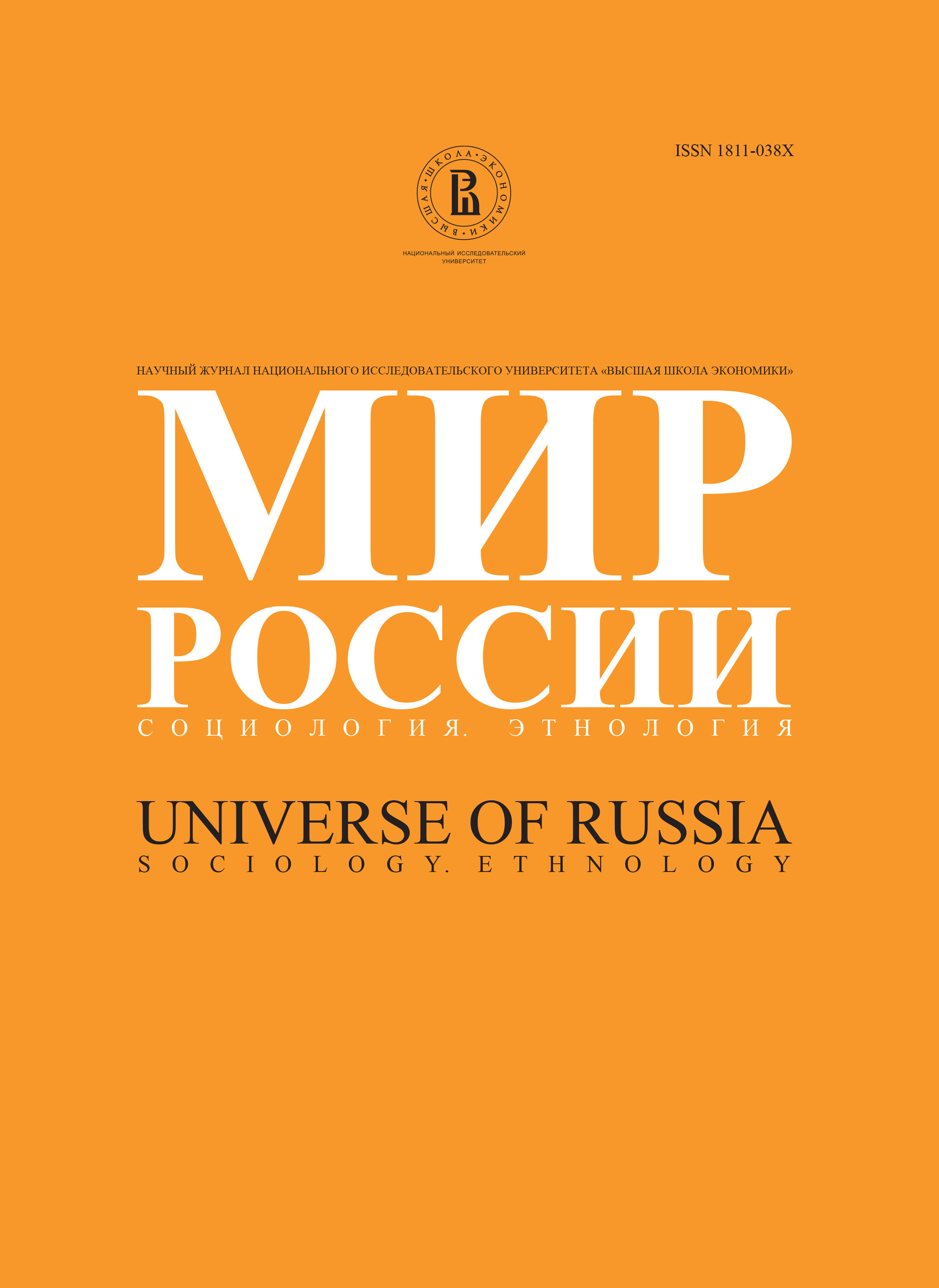Power, Class Structure And Russian Mentality
Abstract
On the book: Kivinen M. Progress and Chaos: Russia as a Challenge for Sociological Imagination (Helsinki: Kikimora Publications, 2002). In contemporary comparative sociological surveys of post-communist countries, the question always arises to what extent Russia can rightfully be placed in one group of countries or another, or to what extent Russia is different, more specific, even too specific, especially with regard of this country’s scope, history and role in recent or long past history, in all of which respects it is incomparable with any other country. Mountains of literature have been produced on the various periods of Russian history, especially on the October Revolution of 1917, on the NEP years, on Stalin’s purges, on the terrible GOULAG, on the “thaw” succeeding the absurd cult of Stalin, on the large scale construction of the Soviet planned economy, on the years of stagnation, on Gorbachev’s perestroika and Yeltsin’s new revolutionary zeal, on the difficulties after the break-up of the Soviet Union, on the Russian mafia clans and the billions of dollars of the “new Russians”, on the renewed power structures of the presidency. There is an understandable apprehension among writers to purposely or inadvertently touch upon the “enormous, unfathomable topic of Russian”; one could say that, regarding such a complicated phenomenon, any two mutually opposite statements could equally be valid, and general formulas, all-embracing conclusions would be risky. After this formidable amount of literature on the topic, it takes exceptional creative courage to write a new generalizing study on the many-faceted construction of power, class relations and cultural structures in the Soviet Union and Russia. This is the weighty task undertaken by the well-known Finnish sociologist Markku Kivinen, director of the Aleksanteri Institute – Finnish Center for Russian and Eastern European Studies at Helsinki University. While the very undertaking is worthy of admiration, the results are especially impressive: in a work of moderate size, the reader finds a curious, captivating and thought-provoking discussion addressed to sociologists, political scientists, and a wider circle of intellectuals. M. Kivinen does not hesitate to state his ambition: he is offering “a general approach to power relations, classes, and cultural characteristics of Russia and the Soviet Union”. The book is the author’s sociological interpretation of what the Soviet Union was and in what direction Russia is moving today. Kivinen is clearly aware that this presentation touches upon a wider thematic range of questions, such as the “perspectives of critical sociology” and the new crossroads of the workers’ movement, including the dilemmas confronting the “left-wing traditions and left fundamentalism” in the West (p. 14–20).






